How do we grow the community-supported agriculture sector? Maresa Bossano, co-ordinator of the UK CSA Network
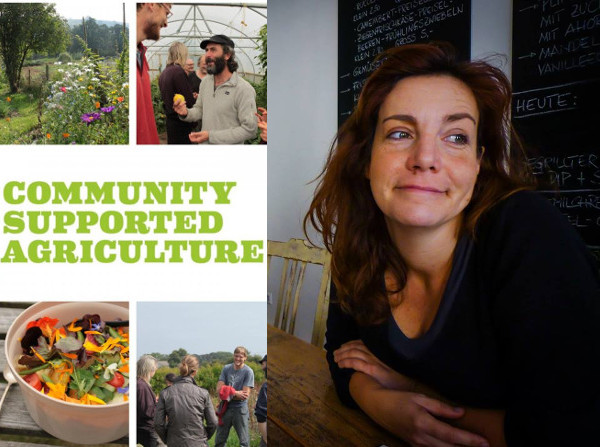
This week we’re talking with Maresa Bossano, who is the co-ordinator for the Community-Supported Agriculture Network in the UK.
What do you do?
I co-ordinate the CSA Network and support the farms involved with it. There are lots of different types, but the thing that links them all is the producers and the consumers share the risks and rewards of farming. The community is supporting the farms in some way or another – either by paying for their vegetables up front, or by buying shares in farms, or helping out with actual manual work on the farms. This makes it more viable for the farmer, because they know that they’ve already got a certain number of members / customers required to cover the costs of production, so that they’ve got a secure income for the year. Also, farming is hard, so if you can get help on the farm as well, that reduces your labour costs. Consumers also benefit by getting fresh, affordable produce, plus the physical and mental health benefits of having access to farms, and being part of a strong community.
Most CSA members find that the produce is better than they could get anywhere else, but they also like being part of the CSA community.
Why do you do it?
Because I think it’s the most ethical and sustainable way to get food. I’m a chef, and I like good-quality produce, so I think it’s better to buy direct from the farm because then you get the freshest, highest-quality food. You don’t get that quality in supermarkets because it’s been transported long distances, sitting around, packaged, processed etc. With CSA you can often get food that’s been harvested that day and doesn’t have to be packaged or transported far to get to your home and your plate. You can’t say that for much food these days unless you produce it yourself.
Plus I think that small-scale farms are the most sustainable form of agriculture. Even large-scale organic farms are often monoculture and rely on heavy machinery, whereas small farms tend to not only produce more food per acre, they’re not monoculture, they’re better for the soil, and provide better habitats for wildlife too. I don’t eat meat or dairy myself, but if you do, the same is true in terms of animal welfare too. Scale is very important, I think.
How did you get into this?
A long time ago I was a ‘Five-a-Day’ co-ordinator for a Primary Care rust, then I worked for Sustain as a food co-ops project co-ordinator, then I set up my own vegan, organic, local food cafe in Hastings, and then I had a baby and sold the cafe and got this job. So I’ve always been involved with food and sustainability. I’ve known about CSA since I was doing the food co-op work.
The strange thing is that although I’ve been a member of lots of veg box schemes, I’ve never been a member of a CSA scheme, as there’s never been one near to me.
What’s the difference between a veg box scheme and a CSA scheme?
When veg box schemes first came to this country, it was based on something that started in Japan called Teikei. It was a CSA, so originally, veg boxes were part of CSAs in Japan. Groups of women were concerned about pesticides, so they approached local farmers to say that they’d help them pack organic veg for veg boxes – and it grew from there.
In the US there are thousands of CSAs, and they’re just veg box schemes – they don’t have much more community involvement than that. So a veg box scheme here would be called a CSA in the States. But here, the main difference is the community involvement, in terms of sharing the risk and the work. That doesn’t need to happen with a veg box scheme – you just pay your money and your box is delivered.
So lots of CSA farms provide veg boxes, but not all veg box schemes are CSAs.
How’s CSA doing? What successes have you had?
We’ve just got another 3 years’ funding from Esmee Fairbairn, who support our work. There are over 100 CSA schemes in the country. We’ve helped at least 15 new ones to start in the last couple of years. Membership has been increasing by about 15-20% per year. We have an A-Z guide to setting up a CSA scheme, and we run a mentoring programme, that allows new CSA farms to get advice from established schemes.
So it’s on the rise. Who are starting CSA schemes?
Yes, it’s definitely growing. Currently most start-ups are producer-led CSAs. They tend to be younger people who’ve received training in horticulture, and who want to set up as CSA growers straight away. CSA works for them because they want to start small. So they start with maybe 20 customers. Often it’s just part-time – they have other jobs too. The other type tend to be older people who have maybe had a career change, and have enough money to buy a house with a plot of land big enough to set up a smallholding, and they want to involve the community in what they’re doing.
The Soil Association runs a Future Growers scheme for people who want to set up organic veg businesses. A lot of new CSA entrants go for that – it’s like an apprenticeship scheme for food growers.
What if you’re an existing farmer, and you think that CSA might be for you?
They can come to us. We’ll give them start-up advice and they can sign up to our mentoring programme. We don’t get a lot of existing farmers changing to CSA. It tends to be new entrants. If they’re already farming organically, and deliver veg boxes or have a stand at farmers’ markets etc., they might not necessarily feel the need to do CSA. I think as organic farmers get older and farming becomes more difficult, CSA could be a way for them to bring in more people.
Are all CSA farms organic?
They’re not all certified organic, but they almost all grow according to organic principles. If they’re not organic, they can still be a CSA. It says on our site that one of our principles is care for the environment, so the farms do tend to be organic, but we don’t police it. That’s not our role. It hasn’t been an issue – the farms don’t use pesticides. It’s just that a lot of the smaller growers find that organic certification is too expensive. And because they’re supplying local customers who can come and visit them, they don’t necessarily need certification to show their customers that they’re actually organic.
Yes, I spoke to Simon Fairlie about this, and his position is that certification should be for farmers who want to use pesticides, not for organic farmers.
That would be better. Why should it be more expensive to do the right thing?
Are there CSA schemes all over the country?
Yes. There’s a map on our website. There tend to more in the south-west and in Wales – generally down to land prices I’d say, and in Wales there is more government support for CSA. There aren’t that many in Scotland, and only one in Northern Ireland.
What kind of support has CSA had from the Welsh government?
They’ve given funding to organisations who support all kinds of community growing. Plus there’s the One Planet Development policy that makes it easier to set up a smallholding.
CSA isn’t just veg is it?
It’s any kind of food – although the majority of our members just produce veg. There are a few who are just livestock, then quite a few who do veg and livestock. CSAs also produce honey, bread, eggs – any produce.
Is there a network for veg box providers?
No. The Soil Association only support the ones that are certified organic. There are some people who might be setting one up soon – for example Growing Communities have a scheme called Better Food Traders, and they’ve helped a number of organic veg box schemes to set up. Now they want to set up a national network, which would include shops, vans, cafes – any small-scale provider supplying quality, local, organic food
What are the biggest obstacles that you face?
As a network, our biggest issue is getting the funding to do the work, because the farms we support don’t have much money. We rely on funding. If there was government money for us to help more new entrants, then it would be easier.
We’ve just helped set up a Fruit & Veg Alliance, which is a group of lots of organisations that support growers, to try to get the government to support growers more – because the government want people to eat more fruit and vegetables, so if there’s more help for growers, we can produce more in the UK to help reach dietary targets. This could mean changes to the way that subsidies are given out, post Brexit. So farmers could be rewarded not just for having land, or for looking after nature, but also for producing healthy food.
What sort of subsidies do farmers get now, and how would you like to see it change?
At the moment, if you farm less than 5 hectares, you don’t get anything. So most of our members have less than 5 hectares, and so don’t get anything. It seems silly, because fruit and veg is supposed to comprise at least a third of people’s diets, but large farms producing sugar, or meat / dairy, which we’re supposed to be cutting back on, get all the subsidies. If subsidies were based on healthy diets, then surely most of the subsidies should be going to fruit & veg growers.
We’ll have to see what happens after Brexit. They might just remove all subsidies rather than spreading them out more evenly. They’re saying a lot of the right things, which is good – especially Michael Gove. We’ll just have to see what happens. We don’t get that involved in campaigning, but the Landworkers Alliance do, and they’ve been quite successful.
But subsidies or no subsidies, it’s not easy being a smallholder. People do it because they want to help protect the environment, and/or build community, and/or they love working outdoors.
So how do we overcome the obstacles faced by the CSA Network and by growers?
Well it would be good if we could communicate to the public that actually, locally-produced organic fruit & veg from CSA is usually cheaper than the equivalent from supermarkets. At some times of year, if there’s a glut of courgettes, say, then it can be very cheap – cheaper than supermarket non-organic. The general perception is that it’s expensive, but it’s not. However, at those prices, organic smallholders aren’t making much profit, so if the government is serious about environmental protection and health, there should be subsidies available.
It shouldn’t require any extra money, should it?
No – subsidies could be shifted from industrial agriculture to organic smallholders. A lot of subsidies go to the richest farmers, who a) don’t need the money, and b) often are using the land for horses, rather than for growing food.
Subsidies based on the size of your land is absurd. It should be for producing healthy, organic food, not for being wealthy. If these subsidies were transferred to small growers, it shouldn’t cost the government any more.
How can individuals help?
Buy from a CSA scheme if they have one near them. In some cases, CSAs were started by the community – so where there wasn’t one, the community got together to set one up because they wanted to be able to buy locally-produced food on a regular basis. We can help people do that if that’s what they want to do. It will either involve working with existing farms, or setting up new farms. A lot of the big CSAs, like Stroud, were driven by the community, because they wanted to be able to have that produce.
Part 2 of this interview is here.
Highlights:
1. At the moment, if you farm less than 5 hectares, you don’t get any subsidies. Most of our members have less than 5 hectares, and so don’t get anything. Subsidies should be shifted from industrial agriculture to organic smallholders. Most subsidies go to the richest farmers, who a) don’t need the money, and b) often are using the land for horses, rather than for growing food.
2. Locally-produced organic fruit & veg from CSA is usually cheaper than the equivalent from supermarkets. At some times of year, if there’s a glut of courgettes, say, then it can be very cheap – cheaper than supermarket non-organic.
The views expressed in our blog are those of the author and not necessarily lowimpact.org's
1 Comment
-
1John Harrison December 16th, 2018
I totally agree with the comment about it being more expensive to be certified organic. That cost alone is enough to bump up the price of the produce – thereby making organic food a product for the better off.




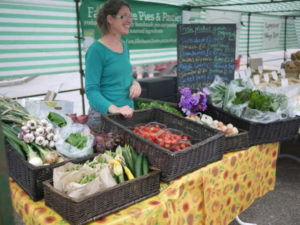 A matter of scale: how small farms provide more jobs and more food per acre
A matter of scale: how small farms provide more jobs and more food per acre
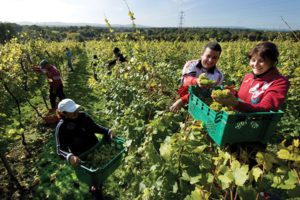 Should we be reliant on cheap foreign labour to work on our farms, or is there a better way to feed ourselves?
Should we be reliant on cheap foreign labour to work on our farms, or is there a better way to feed ourselves?
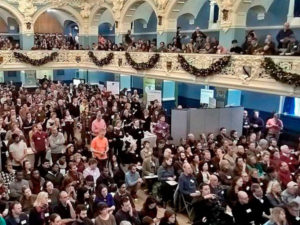 My reflections on the Oxford Real Farming Conference 2018
My reflections on the Oxford Real Farming Conference 2018
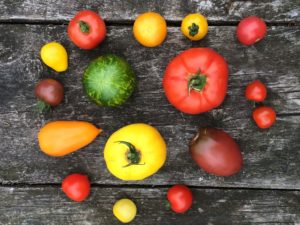 Chagfood community market garden apprenticeships on offer in 2019
Chagfood community market garden apprenticeships on offer in 2019
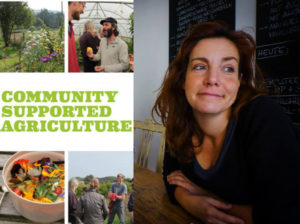 Community-supported agriculture vs corporate supermarkets: Maresa Bossano of the UK CSA Network
Community-supported agriculture vs corporate supermarkets: Maresa Bossano of the UK CSA Network
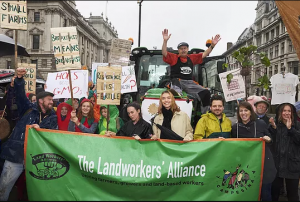 Get the Good Food March 2019 in the diary – pots and pans at the ready!
Get the Good Food March 2019 in the diary – pots and pans at the ready!
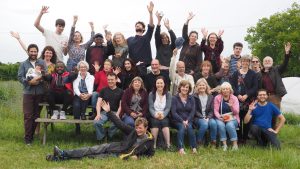 Job opportunity: fancy delivering veg boxes for Sutton Community Farm?
Job opportunity: fancy delivering veg boxes for Sutton Community Farm?
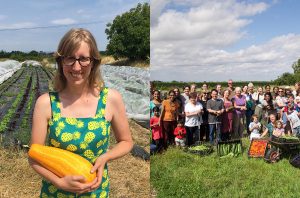 Why community farms are such a good idea: Alice Brown of Sutton Community Farm (Part 1)
Why community farms are such a good idea: Alice Brown of Sutton Community Farm (Part 1)
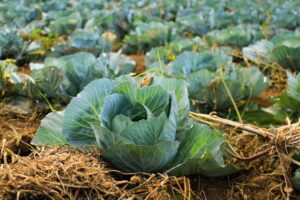 Vision for a UK-Wide ‘Market Garden Renaissance’ from the Landworkers Alliance
Vision for a UK-Wide ‘Market Garden Renaissance’ from the Landworkers Alliance
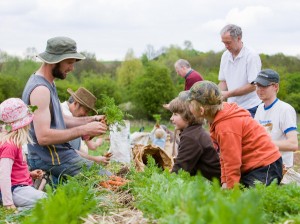 Community-supported agriculture
Community-supported agriculture
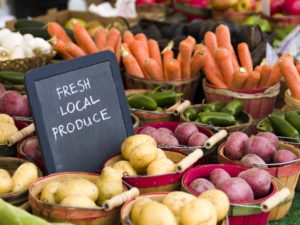 Farmers' markets / direct farm sales
Farmers' markets / direct farm sales
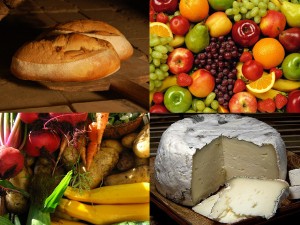 Low-impact food & drink
Low-impact food & drink
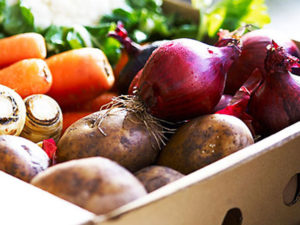 Veg box schemes
Veg box schemes


